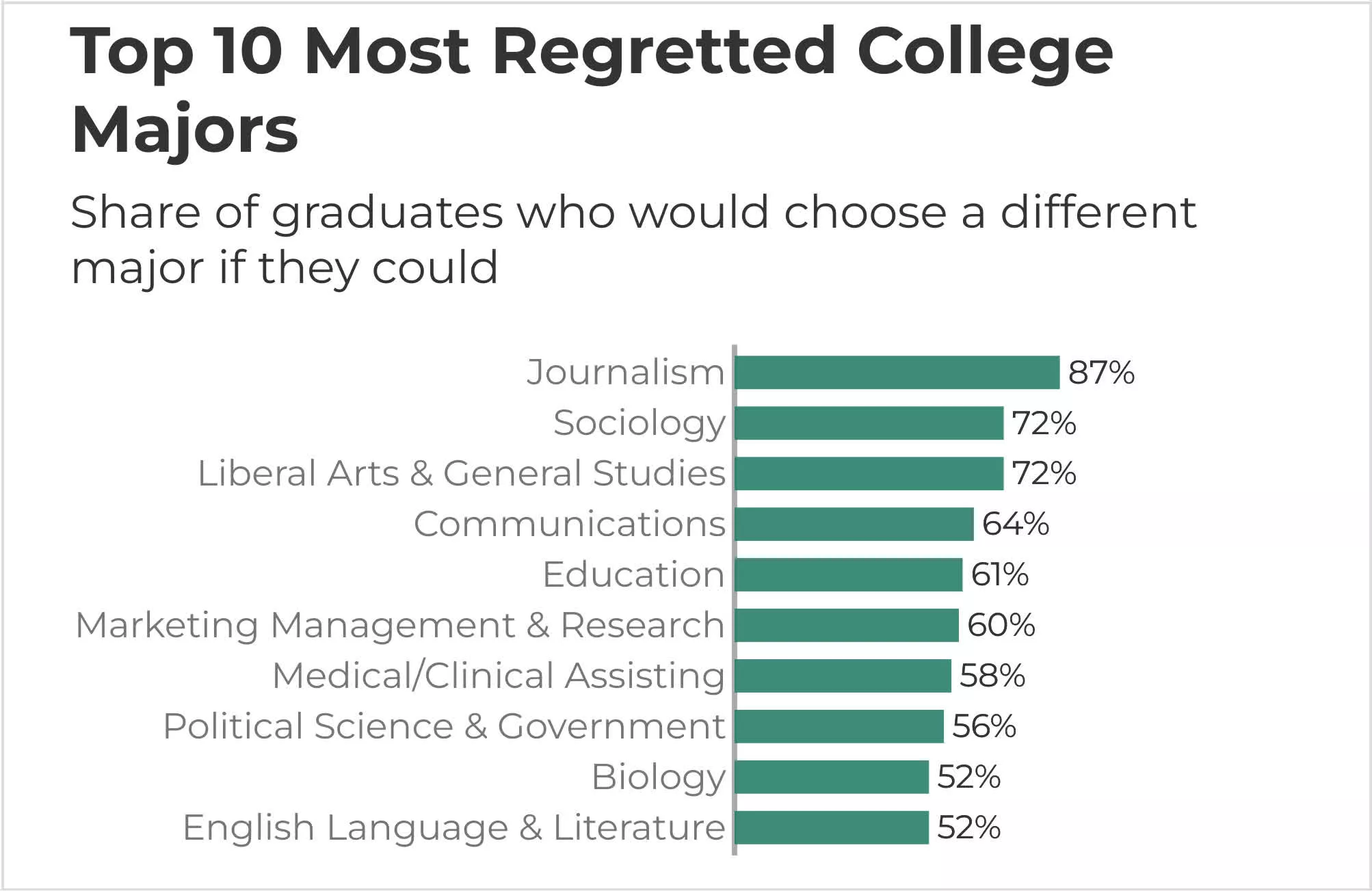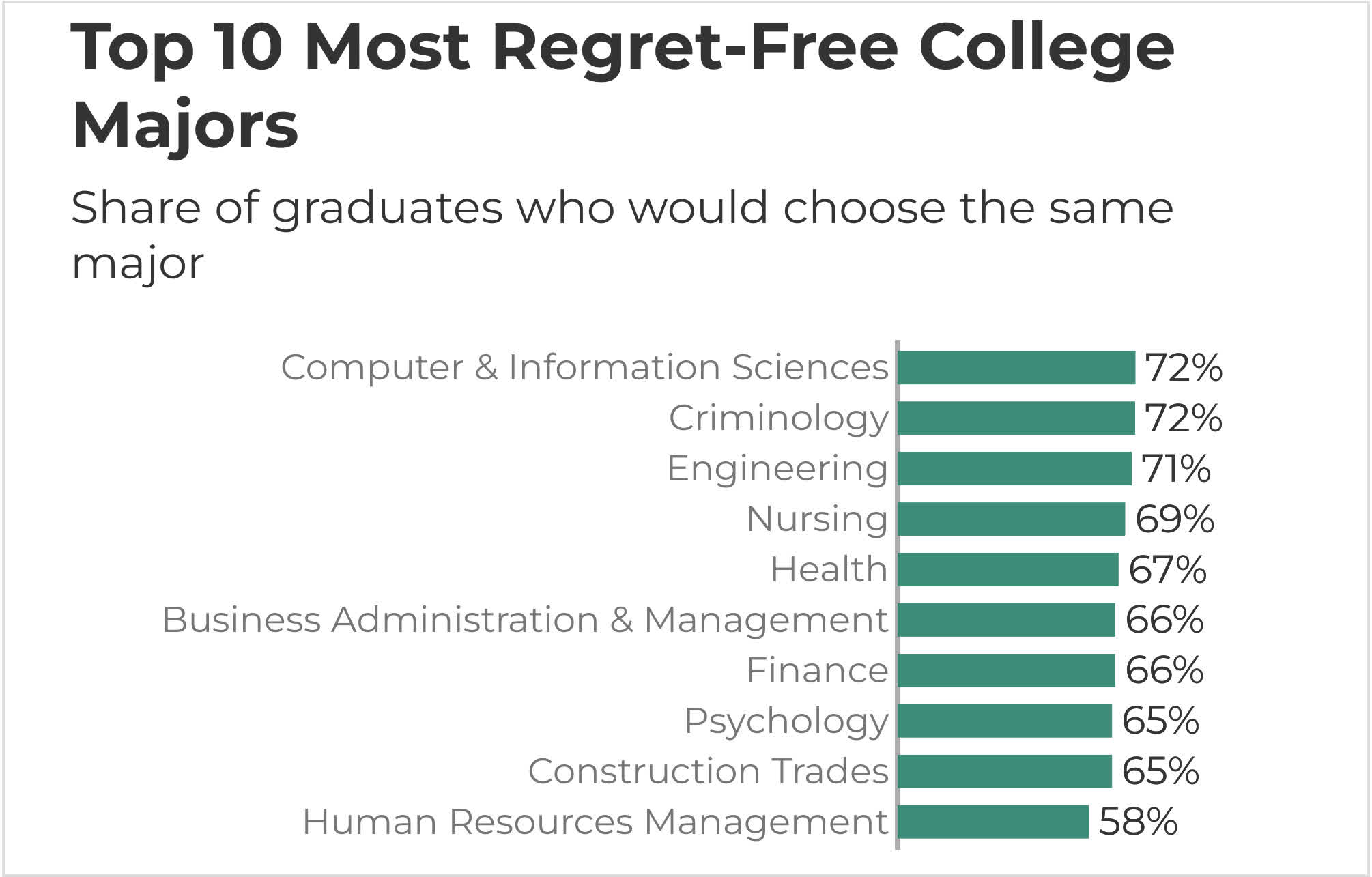The big picture: Selecting a career path is arguably the biggest decision a young person will face up to that point in their life, and most don't get it right out of the gate. Among those that choose college, roughly four out of five end up changing their major at least once according to the National Center for Education Statistics. Even students that stick with it and cross the finish line can regret their choice in hindsight.

According to a recent ZipRecruiter survey of more than 1,500 college graduates looking for a job, nearly half – 44 percent – said they regret their college major choice.
Journalism was the most regretted college major. Sociology and liberal arts / general studies tied for second place followed by degrees in communications and education. Political science, biology and English language / literature also made the top 10 list.
Not everyone hated their major selection. Among those surveyed, the happiest graduates were those with degrees in computer and information sciences, criminology, engineering and nursing. Most with degrees in business administration / management, finance, psychology and human resources said they'd choose the same major if they had it to do over again.
It should come as little surprise that there's a correlation between feelings about degrees and current job prospects as well as pay. Computer science graduates, for example, are in high demand across multiple industries with an annual average salary north of $100,000.
ZipRecruiter found that among communications graduates, those who are happy with their field are earning 1.6 times more than those who would select a different degree. Similarly, satisfied grads with marketing management / research degrees are earning three times more than those with regrets.
Of course, college isn't for everyone. Plenty of people head right into the workforce straight out of high school, and many become very successful. Taking this route eliminates the possibility of being saddled with student loan debt and affords a head start on peers that are still studying.
Image credit: Ekrulila

